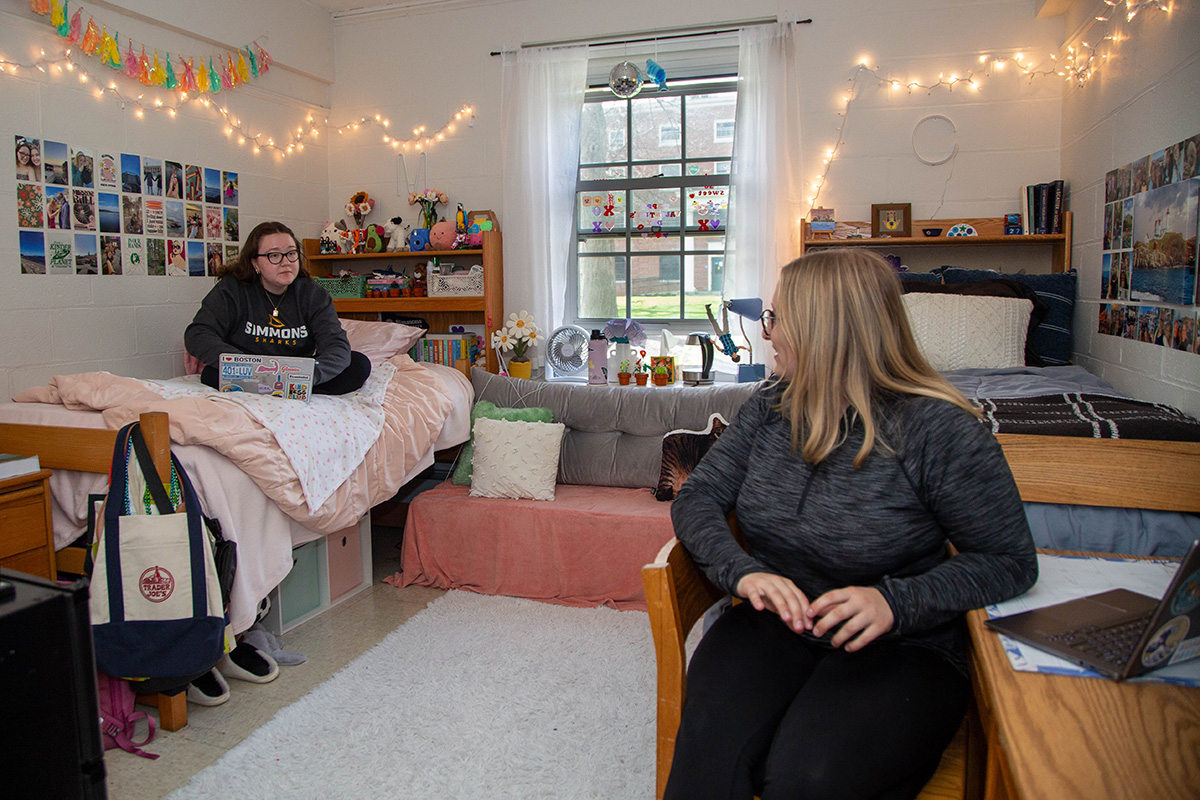Living with a Roommate
Having a roommate(s) goes beyond merely sharing a living space. Building a workable roommate situation requires open communication, honesty, and commitment. This may take time and effort, but it will also be one of your most valuable educational experiences beyond the classroom. The responsibility for developing a living environment compatible to all individuals belongs to each roommate.

While you and your roommate are bound to have some things in common, you will also have many differences. In order to learn from these differences, make an effort to learn about your roommate's background and to share a bit of yours as well.
Getting to know your roommate(s)
Spending time together is the best way for you to get to know each other. At the beginning of the school year, there are a lot of welcome activities and events. Take advantage of these opportunities and attend the events as a group! Go to the dining hall or see a movie together. You'll get along best when you know more about your roommates. The Roommate Agreement will also provide you with an opportunity to talk with your roommates about their likes and dislikes.
Working Together for a Smooth Move-in Day
During opening weekend Simmons staff will be stationed across the residential campus to answer questions and help you move your belongings into your room.
We suggest coordinating move-in times with your roommate(s). Knowing when your other roommates are arriving will make move-in a lot smoother.
If you all arrive around the same time it may be really chaotic OR you may decide that it is much easier to organize and get settled in right away if you all arrive at the same time.
You should work together to decide what is best for all of you.
Working together and discussing what you want to have in your room will not only alleviate problems, but will also make packing and organizing much easier. Who knows, you may have similar or different tastes in colors, posters, and knick-knacks, but thoughtfully combining a bit of everyone's taste could create a really fun, unique space!
We recommend that you decide before coming to campus who gets which bed in order to eliminate the first-come, first-served rush.
Getting along with your roommate(s)
Sharing space can be stressful — even if you and your roommates are best friends — but even roommates who are very different can have a great roommate relationship. Sharing a room requires flexibility and equal consideration and involves the 3 Cs: courtesy, communication, and compromise. Many decisions will involve compromise, from arranging the room to figuring out study situations.
We strongly encourage you to talk with your roommates and come to an agreement as early on as possible about space usage, classes and work schedules and general roommate expectations!
During the first floor meeting with your Resident Assistant (RA), the RA will provide you with a Roommate Agreement, which will foster important conversations. This is a time-tested tool for starting off with clear communication about roommate expectations and how to have a great roommate experience.
Discussing the following topics with your roommate(s) before moving to campus will help you establish a comfortable living environment right from the start.
- Is neatness important to you and your roommate(s)?
- How do you feel about borrowing or sharing things (refrigerator, stereo, television etc.)?
- What is okay to borrow, what is not?
- Will you both have equal access to the computer, stereo, television, etc., no matter who brought them?
- Will you both use the same alarm clock?
- What about the snooze button?
- Are there limits to how often the snooze button is used?
- Are there times when talking to my family and friends on the telephone or online via Zoom or Skype are not appropriate?
- The bulk of my studying occurs when?
- I am not able to study in this type of environment...
- I enjoy this type of music (at what level)...
- When I sleep I enjoy this type of environment (music playing, window open, lights on, etc.,)
- Are overnight guests acceptable?
- What are our expectations regarding overnight guests?
- What is an appropriate time frame for overnight guests to visit (weekends, weekdays, time limits)?
- If people drop in while one roommate is studying, how will you handle it?
- What are you looking forward to at Simmons University?
- Is there anything that you are nervous about?
- Have you ever shared a room with someone before?
If so, what was it like for you? - Do you know what your major will be?
If so, what do you hope to do with it? - What types of things are you hoping to get involved in on or off campus?
Roommate Conflicts
What happens if we don't get along as roommates?
When matching roommates, our office uses a lifestyle questionnaire on our housing application to pair residents. However, roommate conflicts do arise, whether between roommates who have chosen each other, or who have been assigned. In these instances, our office uses the following protocol (which is also outlined in the Housing Contract):
- First, roommates will be asked to revisit the Roommate Agreement they signed upon move in, and identify any changes that need to be made.
- If the conflict persists after implementation of any changes, roommates must participate in a mediation facilitated by their RA.
- If the conflict is still not resolved after the first mediation, the roommates must speak with their Area Coordinator about next steps. The AC may mandate another mediation through the Office of Residence Life professional staff, or they may approve a room change, pending available space on campus. No room changes may be implemented without being approved by a Residence Life professional staff member.
